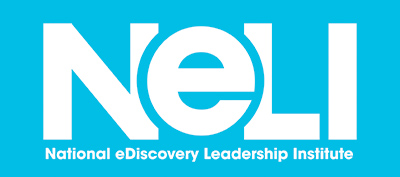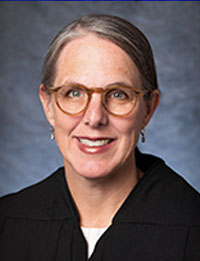
Judge Goddard was sworn in as a U.S. Magistrate Judge for the Southern District of California in August 2019. She graduated from Boston College in 1993, and received her J.D. from the University of San Diego School of Law in 2000. Judge Goddard spent the first half of her legal career representing corporate defendants in litigation at Cooley LLP and her own law firm, Jaczko Goddard LLP. In 2011, she shifted her practice to representing plaintiffs in complex and intellectual property litigation. She has tried several cases, including class actions and patent infringement disputes. Judge Goddard speaks regularly on ediscovery and other litigation issues. She is a member of the Advisory Board of the San Diego Chapter of the Federal Bar Association and the Louis M. Welsh Inn of Court.
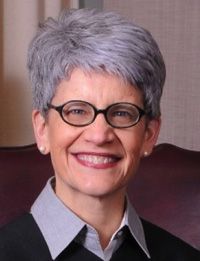
The Honorable Teresa J. James was appointed on January 16, 2014 as a United States Magistrate Judge for the District of Kansas in Kansas City. Judge James received her undergraduate degree from the University of Kansas in 1981 and her Juris Doctor from the University of Kansas in 1984. Following graduation, Judge James engaged in private practice in Wichita until she joined the Overland Park branch of Martin, Pringle, Oliver, Wallace & Bauer, LLP in 2003. At Martin Pringle, Judge James was a partner and specialized in Energy, Oil and Gas, Condemnation and Complex Litigation. Prior to going on the Bench, Judge James served on the board of the Kansas Bar Association’s Continuing Legal Education Commission, on the Bench-Bar Committee for the U.S. District Court for the District of Kansas, and on the Kansas Appleseed Foundation Board. She is also a Fellow of the Kansas Bar Foundation and the American Bar Foundation, on the board and Diversity Committee of the Federal Bar Association, K.C. Chapter (FBA), Past President of the Earl E. O’Connor Inn of Court and continues to be actively involved in the Inn of Court and FBA and to serve on the Bench-Bar Committee.
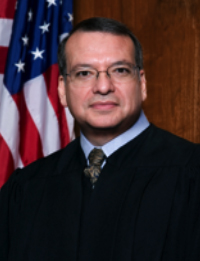
Xavier Rodriguez is a former Texas Supreme Court Justice and currently sits on the bench as a United States District Judge for the Western District of Texas. Born in San Antonio, Texas, he received his bachelor’s degree from Harvard University, a master’s degree from the University of Texas LBJ School of Public Affairs and a doctor of jurisprudence degree from the University of Texas Law School. Prior to assuming the bench, he was a partner in the international law firm of Fulbright & Jaworski (now known as Norton Rose Fulbright). Judge Rodriguez is a frequent speaker on continuing legal education seminars and has authored numerous articles regarding employment law, discovery and arbitration issues. He is the editor of Essentials of E-Discovery (TexasBarBooks 2014). He is a member of The Sedona Conference Judicial Advisory Board and serves as an adjunct professor of law at the St. Mary’s University School of Law. He was elected to membership in the American Law Institute, and is a Fellow of the American Bar Foundation and the Texas Bar Foundation. In 2011 he was awarded the Rosewood Gavel Award for outstanding judicial service from the St. Mary's University School of Law. In 2017, he received the State Bar of Texas Gene Cavin Award for Excellence in CLE, recognizing his long-term contributions to continuing legal education.
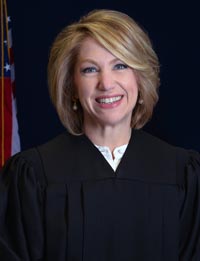
Angel D. Mitchell was appointed in 2019 to serve as a U.S. Magistrate Judge in the District of Kansas. Before joining the bench, she was a partner at Shook Hardy & Bacon, LLP, where she practiced in intellectual property litigation. While there, she represented primarily Fortune 100 clients in patent, trademark, and copyright cases in federal district courts throughout the country. She also handled appellate litigation before the Federal Circuit and coordinated litigation efforts with parallel proceedings before the United States Patent & Trademark Office. Earlier in her career, she practiced as an associate at then-Blackwell Sanders Peper Martin, LLP’s commercial litigation practice, and served as a law clerk to U.S. Magistrate Judge James P. O’Hara and U.S. District Judge John W. Lungstrum.

The Honorable Andrew J. Peck served for 23 years as a United States Magistrate Judge for the Southern District of New York, including a term as Chief Magistrate Judge from 2004 to 2005. Before his appointment to the bench, Judge Peck was in private practice for 17 years, focusing on commercial and entertainment litigation, including copyright and trademark matters, with extensive trial experience. At DLA Piper, Judge Peck advises on innovative and efficient solutions to the challenges of information management, both within and outside the litigation context. He frequently speaks at conferences concerning eDiscovery issues. Judge Peck also is available to serve as an arbitrator, mediator and Special Master. Judge Peck is recognized internationally for bringing electronic discovery competency to the attention of both the judiciary and bar. Indeed, he is widely described as the first judge to tackle the subject of e-discovery head on, most notably in the influential 1995 decision Anti-Monopoly v. Hasbro, in which Judge Peck found that "it is black letter law that computerized data is discoverable if relevant." Also among his legacy rulings is the 2011 employment class action Monique Da Silva Moore, et. al. v. Publicis Groupe & MSL Group, the first judicial decision approving the use of technology-assisted review. In March 2018, the New York Law Journal called Judge Peck "one of e-discovery's most influential figures. Among the honors he has received, American Lawyer named him to its list of the Top 50 Innovators of the Last 50 Years as its Judicial E-Discovery Innovator.
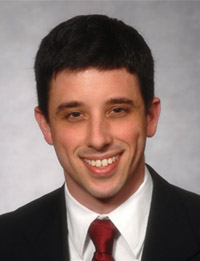
Jeremy Wikler is of counsel in the Data and Discovery Strategies Practice Group at Shook, Hardy & Bacon L.L.P. He has over a decade of experience managing all aspects of discovery and litigating a wide variety of discovery disputes in multi-party and individual cases pending in state and federal courts across the country. Jeremy regularly advises clients on best practices for discovery and information-governance issues. He is actively involved in the legal community and dedicates a portion of his time to tracking relevant market and technology trends.
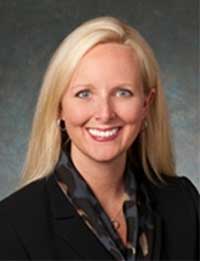
Robin E. Stewart is the founder and Chair of Kutak Rock's eDiscovery Practice Group and she maintains an active litigation practice where she regularly appears in state and federal courts across the country. The National eDiscovery Leadership Institute was the brainchild of Ms. Stewart, who sought to create a forum for the scholarly discussion and debate of electronic discovery issues and to foster cooperation among the bench and bar. Ms. Stewart is also an active member of the Sedona Conference Working Group 1, which is the leading "think-tank" on eDiscovery and she serves on the ESI Rules Committee for the United States District Court for the Western District of Missouri. Ms. Stewart regularly counsels clients in all aspects of eDiscovery ranging from data retention to collection, review and production, including outsourcing options, early case assessment and vendor selection. In her capacity as eDiscovery counsel, Ms. Stewart manages projects for clients involving terabytes of data and she has a wealth of experience managing document review projects through the utilization of both onshore and offshore contract attorneys and through the use of cutting edge technologies, such as predictive coding. Ms. Stewart is widely known and respected in the national eDiscovery community as a thought leader through her numerous articles, alerts and speaking engagements on the all aspects of eDiscovery. Ms. Stewart’s greatest asset to clients, however, is her common sense approach to eDiscovery matters, which is derived from her thriving commercial litigation practice encompassing the financial services, life sciences and technology industries, including defense of product liability matters, ADA and TCPA litigation. In her own practice, Ms. Stewart "walks the walk" by implementing the very eDiscovery approaches about which she speaks and writes.
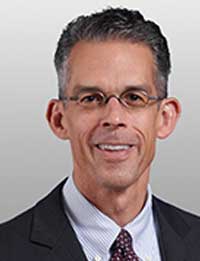
Edward Rippey is a partner who litigates complex cases in numerous fields -- with a focus on patent litigation. In addition to patent law, these matters have included such fields as antitrust, consumer, transportation, energy, sports, pharmaceutical, copyright, communications, and securities law. Mr. Rippey also is Chair of the firm's E-Discovery Practice - and represents and advises enormous multinational corporations in this arena. He is ranked in Chambers Global, Chambers USA, Who~ Who Legal, and Super Lawyers. The Chambers rankings note that Mr. Rippey is a "savvy and forward-thinking" litigator who "understands not just the technical a-discovery pieces but also the implications for active litigation.11
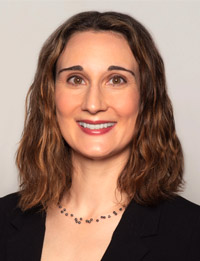
Emily is a lawyer who has been solving eDiscovery and information governance problems for over 14 years. Having worked as outside counsel, in-house counsel, and a consultant in the service provider space, Emily has a uniquely well-rounded view of the world of eDiscovery, enabling her to understand the perspectives of all stakeholders in a particular project or issue. Emily's professional passion is for solving the riddles and puzzles put forth daily by our rapidly evolving field, and collaborating with the other eDiscovery practitioners to find the unique answer to each. She also enjoys speaking and writing about these war stories. Emily received her law degree from Indiana University's Maurer School of Law. Prior to that, she studied history, political science, and Russian language, graduating summa cum laude from Indiana University.
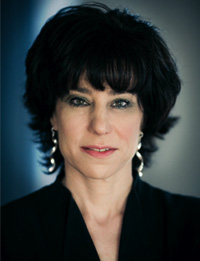
Maura R. Grossman, J.D., Ph.D., is a Research Professor and Director of Women in Computer Science at the University of Waterloo, as well as an Adjunct Professor at Osgoode Hall Law School. She also is Principal at Maura Grossman Law, an eDiscovery law and consulting firm in Buffalo, New York. Previously, Maura was Of Counsel at Wachtell, Lipton, Rosen & Katz, where, for 17 years, she advised the firm’s lawyers and clients on legal, technical, and strategic issues involving eDiscovery and information governance, both domestically and abroad.
Maura’s scholarly work on TAR, most notably, Technology-Assisted Review in E-Discovery Can Be More Effective and More Efficient Than Exhaustive Manual Review, published in the RICHMOND JOURNAL OF LAW AND TECHNOLOGY in 2011, has been widely cited in the case law, both in the U.S. and elsewhere. Her longstanding contributions to eDiscovery technology and process were featured in the February 2016 issue of THE AMERICAN LAWYER and the September 2016 issue of the ABA JOURNAL, where she was recognized as a “Legal Rebel.” Maura has served as a court-appointed special master, mediator, and eDiscovery expert to the court in many high-profile cases, and has also taught courses in eDiscovery at Columbia, Georgetown, Pace, and Rutgers–Newark law schools. In addition to her J.D. from Georgetown, Maura also holds M.A. and Ph.D. degrees in Psychology from the Derner Institute at Adelphi University.
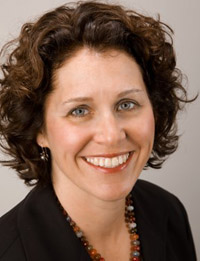
Kelly Twigger is a Discovery Strategist and the Principal of ESI Attorneys, one of the first law firms in the country dedicated to advising clients on issues in electronic discovery, open records and FOIA, compliance and information management. Kelly’s practice includes consulting with clients on information governance and issues with electronically stored information and acting as eDiscovery counsel for law firms, corporations and municipalities. In 2014, the Wisconsin State Bar recognized Kelly as a Legal Innovator for her development of the eDiscovery Assistant™, a web based curated eDiscovery research tool and learning center that allows users to conduct ediscovery specific research and meet their ethical obligations to be up to date on ediscovery practices. Kelly is also a co-author of Electronic Discovery and Records and Information Management, a legal resource book updated annually and published by West, a nationally recognized speaker, writer, and go-to expert on eDiscovery and information management issues. She is a regular guest lecturer at law schools across the country, blogger and ediscovery columnist for Above the Law.
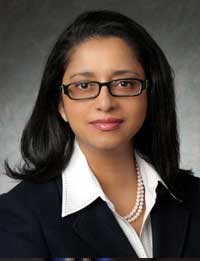
Tessa is the founder and chair of Husch Blackwell’s eDiscovery Solutions group. A practicing attorney for 20 years, Tessa has a strong understanding of the legal, technical, and strategic aspects of eDiscovery. Tessa has served as lead eDiscovery counsel in numerous class actions, and has led eDiscovery efforts for numerous companies that were the target of government investigations by the Department of Justice, Securities and Exchange Commission and the Federal Energy Regulatory Commission. She has vast experience with large volume litigation and works in the trenches handling preservation, collection and managing review teams. She also has tremendous knowledge and experience using data mining tools and technology assisted review. A part of Tessa’s practice also includes working with clients to evaluate and create efficient, repeatable, scalable legal hold processes. Tessa frequently speaks on issues related to eDiscovery and is on the Advisory Board for NeLi and the Arkfeld-ASU eDiscovery Conference. She is also an Adjunct Professor of Law at UMKC Law School where she teaches a semester long upper level eDiscovery course.
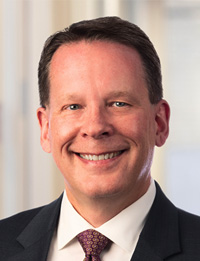
Martin T. Tully is a partner at Redgrave LLP in Chicago. He is a veteran trial lawyer with over 25 years of national experience representing companies and individuals in complex commercial litigation concerning a broad array of fields and industries. Empowered by his commercial litigation practice, Martin is nationally recognized for his knowledge and experience in the fields of electronic discovery, information governance, and data security/data privacy. His expertise helps clients to stay ahead of the curve in each of these fields with respect to developing law, technology, and best practices, whether in the context of active litigation and regulatory matters, or in seeking to avoid them. Martin is also adept at leveraging both technology and strategic partnerships with technologists to achieve client objectives.
Martin advances thought-leadership in data law as the Vice Chair of the Steering Committee of the Sedona Conference Working Group on Electronic Document Retention and Production (WG-1), as an active member of the Sedona Conference Working Group on Data Security and Privacy Liability (WG-11), the 7th Circuit Council on eDiscovery and Digital Information, the ABA Section of Litigation, Privacy and Data Security Committee, and the International Association of Privacy Professionals (IAPP), as well as a director at-large of the Chicago Chapter of the Association of Certified E-Discovery Professionals (ACEDS). In addition, Martin has published and presented extensively on the topics of e-discovery, information governance, cybersecurity, data privacy, and legal technology; is among a select group of lawyers in the world ranked for Litigation: E-Discovery & Information Governance by Chambers USA: America’s Leading Lawyers® and Chambers & Partners Global®; and he has been acknowledged by Who’s Who Legal® as being “steps ahead of his competitors” and “widely regarded for his ‘superior knowledge’ of electronic discovery and information governance.”
Martin is also a founder and the Managing Member of Quointec LLC, a legal tech subsidiary powered by Actuate Law. Quointec’s mission is to design and build legal expert systems and other AI-driven tools that automate the delivery of legal and compliance services to meet client and industry demand for more efficient, scalable, and cost-effective solutions.
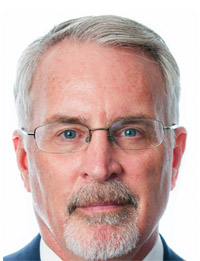
Tom is a prominent eDiscovery lawyer and one of the nation's leading authorities on the use of technology-assisted review (TAR) in litigation. Tom advises corporations and law firms on best practices for applying technology to reduce the time and cost of discovery. He has more than 30 years’ experience as a trial lawyer and in-house counsel, most recently with the law firm Schnader Harrison Segal & Lewis, where he was a partner and chair of the eDiscovery Practice Group.
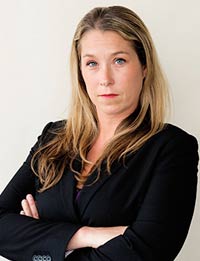
Lea Malani Bays is Of Counsel at Robbins Geller Rudman & Dowd in San Diego. Robbins Geller Rudman & Dowd specializes in complex securities litigation on behalf of investors. Lea currently focuses on the firm’s electronic discovery issues from preservation through production and provides counsel to the firm’s multi-disciplinary e-discovery team. She is familiar with the various stages of electronic discovery, including identification of relevant electronically stored information, data culling, predictive coding protocols, privilege and responsiveness reviews. Lea also has also has experience in post-production discovery through trial preparation for a wide range of litigation.
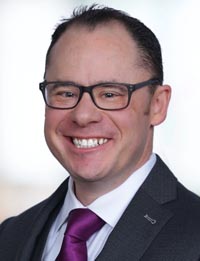
Daniel is the Managing Director of the Managed Services practice group. He has 18 years of experience in the legal space. As a practicing lawyer, Daniel quickly identified that by appropriately harnessing new forms of legal technology, both lawyers and legal professionals could be vastly more productive and effective. This realization led Daniel to the legal service provider space and with it, came years of success at consulting with some of the largest corporate law departments and law firms across the country.
Daniel’s experience in e-discovery technical consulting, consultative advising, as well as leading a national operations team for an IT managed services company has enabled him to provide a holistic and comprehensive approach to how in-house and law firm legal professionals can best leverage technology to create a collaborative and dynamic approach to e-discovery.
Daniel’s passion for managed services has made him a known thought leader in e-discovery. His musings on the effective utilization of legal technology have been published in several blog posts, articles, and white papers over the years. He is also a frequent CLE speaker on topics ranging from e-discovery managed services to the ethical requirements in e-discovery to the convergence of cybersecurity and legal technology.
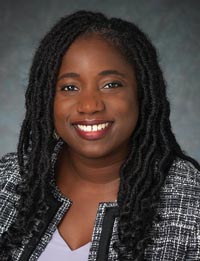
Uzo Nwonwu is an experienced employment litigator and counselor who currently works as Deputy General Counsel at UMB Bank managing litigation, judicial compliance, and focusing on employment law matters. Before moving in-house, she spent over a decade litigating both single plaintiff and class action employment law cases and managing all e-discovery issues that came up in those cases. Her practice spanned both state and federal courts in numerous jurisdictions. As in-house counsel, she has continued her work on e-discovery including working internally on best practices for e-discovery efforts, litigation readiness, and data management in a constantly shifting e-discovery world.
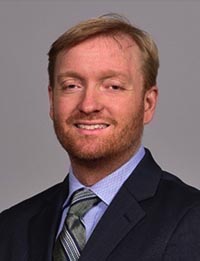
Greg MacFarlane is the Senior Director of Managed Review Sales at legal technology leader DISCO Well-versed in all aspects of the litigation process, he focuses on ediscovery workflow to help clients manage the costs and risks of managing big data in litigation, using his expertise to inform sales and pricing strategies. Greg received his JD from Temple University’s Beasley School of Law and is completing his Masters of Engineering at George Washington University’s School of Engineering and Applied Sciences.

Paul McVoy has been in the discovery sector since paper ruled the day. He believes wholeheartedly that by using the best technology, coupled with the right advice, any party, no matter what size, can match up evenly against any other. Paul began his career as the Litigation Support Department Manager for one of the largest law firms in the world, then started what would become one of the world’s largest e-discovery companies and, after moving back into the law firm setting, became the first named Chief Discovery Officer. Paul has been ranked by Chambers and Partners as a Trusted EDiscovery Advisor for the past 4 years, one of only a handful of practitioners to be honored as such. In addition, Paul has lead the Sedona Conference’s Technology Resource Panel for the past 6 years, during which he has also been the editor of the Sedona Conference Glossary: eDiscovery and Digital Information Management for the past 2 editions.
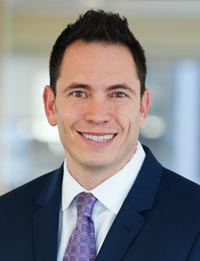
Co-leader and one of the original attorneys in Morgan Lewis’s eData practice, Scott A. Milner counsels and advises companies in electronic discovery and information governance processes and best practices. He works with Morgan Lewis’s lawyers across practice groups to tailor strategies and discovery management plans for clients around the globe, in numerous industries and disciplines. Scott’s practice encompasses all phases of eDiscovery, from preservation and collection to review and production of large volumes of electronically stored information (ESI).
Scott participates in 26(f) conferences, negotiates ESI agreements and stipulations addressing the scope of preservation of information, and details data that’s not reasonably accessible. He also advises on collection methodology, search and retrieval methodology, FRE 502(d) orders, and production specifications.
Clients frequently engage and rely on Scott to negotiate discovery protocols with several US government agencies, including the Department of Justice, the Securities and Exchange Commission, the Federal Trade Commission, the Department of Labor, the Consumer Product Safety Commission, and the Office of Inspector General of the Department of Health and Human Services, as well as numerous state US Attorneys’ offices. He serves as eDiscovery liaison in jurisdictions across the United States, negotiates technology-assisted review protocols, and handles motions related to discovery disputes.
Clients’ in-house legal counsel, technology teams, and records-management departments collaborate with Scott to develop and implement best practices for eDiscovery including rollout on the use of advanced technology including AI-based platforms. He develops internal and external discovery guidelines addressing each phase of the Electronic Discovery Reference Model (EDRM) for clients including a global technology company and a global logistics and shipping company.
Sharing almost two decades of experience in eDiscovery, Scott is a frequent speaker on topics in the discovery, innovation and disruption space. Scott received his J.D., cum laude, from Villanova University School of Law and B.A. from the University of Florida.
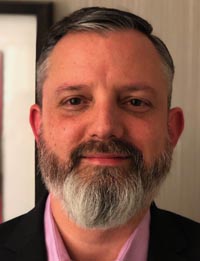
Lawyer and experienced e-discovery consultant John Pappas is Midwest Director with OpenText. Before joining OpenText, John was a litigator and trial attorney, specializing in commercial litigation, products liability and warranty litigation, construction litigation, insurance casualty and coverage litigation, and all aspects of e-discovery including data collection, processing, and advanced search and analytics.
After eighteen years in the practice of law, John advises clients on e-discovery strategies, admissibility of electronic evidence, along with best-practices for understanding and reducing data volumes to ultimately lower discovery costs.
John is a member of the EDRM Global Advisory Council, a co-chair on the Seventh Circuit eDiscovery Pilot Program, a member of WG 1 of the Sedona Conference, and President of the ACEDS Chicago Chapter. He has presented at continuing legal education seminars across the Midwest on e-discovery and technology-assisted review topics.
John received a J.D. from the John Marshall Law School and a B.A. from Michigan State University. He is admitted to practice in Illinois.
